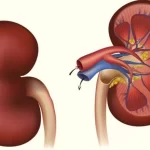There are several ways to lose weight quickly. One way is to reduce your calorie intake by (Diets to lose weight fast) cutting out high-calorie foods and drinks and eating more fruits, vegetables, and lean proteins. Another way is to increase your physical activity, such as by starting a new workout routine or increasing the intensity of your current one. Also, drinking water and getting enough sleep can help with weight loss. However, it is essential to note that rapid weight loss can harm your health and it is always best to consult a healthcare professional before making any drastic changes to your diet or exercise routine.
Diets to lose weight fast
There are many different diet plans that can be effective for weight loss. Some popular options include:
- The Mediterranean Diet: This diet focuses on eating a variety of fruits, vegetables, whole grains, lean proteins, and healthy fats.
- The DASH Diet: This diet emphasizes foods that are low in sodium and high in nutrients that help lower blood pressure, such as fruits, vegetables, whole grains, and lean proteins.
- The Low-Carb Diet: This diet limits carbohydrates and emphasizes foods high in protein and fat, such as meats, fish, and non-starchy vegetables.
- The Flexitarian Diet: This diet is a more flexible version of a vegetarian diet, which allows for small amounts of meat and fish.
- Intermittent fasting: This is an eating pattern where you alternate periods of eating with periods of fasting.
It is important to note that a diet that works for one person may not work for another, and it is always best to consult a healthcare professional or a registered dietitian before starting any new diet plan.
Disa Diets to lose weight fast
The DASH Diet, short for “Dietary Approaches to Stop Hypertension,” is a diet plan that emphasizes foods that are low in sodium and high in nutrients that help lower blood pressure, such as potassium, calcium, and magnesium. The diet includes a variety of fruits, vegetables, whole grains, lean proteins, and healthy fats. It is a balanced, nutrient-dense diet that can help lower blood pressure, improve cholesterol levels, and reduce the risk of heart disease and stroke.
The DASH Diet includes:
- Fruits: Aim for 4-5 servings per day.
- Vegetables: Aim for 4-5 servings per day.
- Whole grains: Make at least half your grains whole grains.
- Lean proteins: Choose lean proteins such as fish, poultry, beans, and nuts.
- Fat-free or low-fat dairy: Choose fat-free or low-fat dairy products such as milk, yogurt, and cheese.
- Nuts, seeds, and legumes: Include a small amount, 4-5 servings per week.
- Healthy fats: Choose healthy fats such as olive oil, avocado, and nuts.
The DASH Diet also limits the intake of:
- Sodium: Aim for less than 2,300 mg per day.
- Sweets, added sugars, and sugary drinks: Limit to no more than 5 servings per week
- Red meats and processed meats: Limit to no more than 6 ounces per day.
It is important to note that the DASH Diet is not a weight loss diet, it is a diet that can improve your overall health. Consult with a healthcare professional or a registered dietitian to create a personalized version of the DASH Diet that is right for you.
Mediterranean Diets to lose weight fast
The Mediterranean Diet is a dietary pattern that is based on the traditional foods and customs of countries surrounding the Mediterranean Sea. It is a well-balanced, nutrient-dense diet that emphasizes:
- Fruits and vegetables: Aim for 7-10 servings per day.
- Whole grains: Make at least half your grains whole grains.
- Lean proteins: Choose lean proteins such as fish, poultry, beans, and nuts.
- Healthy fats: Include olive oil, avocado, nuts, and seeds in your diet.
- Herbs and spices: Use herbs and spices for flavor instead of salt.
The Mediterranean diet also includes moderate amounts of:
- Dairy products: Choose fat-free or low-fat dairy products such as milk, yogurt, and cheese.
- Red wine: In moderation, one glass per day for women and two for men.
It limits the intake of:
- Red meats and processed meats: Limit to no more than a few times per month.
- Sweets and added sugars: Enjoy in moderation.
The Mediterranean diet has been associated with a variety of health benefits, including improved cardiovascular health, better blood sugar control, and a lower risk of certain types of cancer. It may also help with weight loss when consumed in a calorie-controlled manner. Consult with a healthcare professional or a registered dietitian to create a personalized version of the Mediterranean Diet that is right for you.
Low-Carb Diets to lose weight fast
The Low-Carb Diet is a dietary pattern that limits the intake of carbohydrates, typically by cutting out or greatly reducing foods that are high in carbohydrates, such as grains, sugars, and some fruits and vegetables. Instead, it emphasizes foods that are high in protein and fat, such as meats, fish, and non-starchy vegetables.
Low-carb diets can include several different variations, such as:
- The ketogenic diet (keto diet): This is a very low-carb, high-fat diet that aims to put the body into a state of ketosis, where it burns fat for energy instead of carbohydrates.
- The Atkins diet: This is a low-carb, high-protein diet that has four phases, starting with a very restrictive phase and gradually adding more carbohydrates.
- The Paleolithic diet (Paleo diet): This diet is based on the idea of eating as our ancestors did during the Paleolithic era, which emphasizes lean meats, fish, fruits, vegetables, nuts, and seeds, and eliminates grains, legumes, dairy products, and processed foods.
Low-carb diets can result in weight loss, especially in the short term, and can also improve certain health markers such as blood sugar and cholesterol levels. However, it is important to note that a low-carb diet can be difficult to maintain in the long term, and may have risks, such as nutrient deficiencies and an increased risk of heart disease when followed in an unbalanced way. Consult with a healthcare professional or a registered dietitian before starting a low-carb diet to create a personalized version that is safe and effective for you.
Flexitarian Diet
The Flexitarian Diet is a more flexible version of a vegetarian diet, which allows for small amounts of meat and fish. It emphasizes plant-based foods such as fruits, vegetables, whole grains, legumes, nuts, and seeds, while still allowing some animal products, such as meat, fish, and dairy. The goal of the Flexitarian Diet is to reduce the overall consumption of animal products and to increase the intake of plant-based foods, which can have a variety of health benefits, including weight loss, improved heart health, and a reduced risk of certain types of cancer.
The Flexitarian Diet includes:
- Fruits and vegetables: Aim for 7-10 servings per day.
- Whole grains: Make at least half your grains whole grains.
- Legumes: Include a variety of beans, lentils, and peas.
- Nuts and seeds: Include a small amount, 4-5 servings per week.
- Meat and fish: Include small amounts, less than once a day.
- Dairy products: Choose fat-free or low-fat dairy products such as milk, yogurt, and cheese.
It limits the intake of:
- Processed foods: Avoid processed foods as much as possible.
- Sweets and added sugars: Enjoy in moderation.
The Flexitarian Diet can be a good choice for those who want to eat a primarily plant-based diet but find it difficult to completely eliminate animal products from their diet. It is important to note that a Flexitarian Diet can be a healthy and sustainable way of eating, however, it is always best to consult a healthcare professional or a registered dietitian to create a personalized version that is safe and effective for you.
Intermittent fasting
Intermittent fasting is an eating pattern where you alternate periods of eating with periods of fasting. It is not a traditional diet plan that tells you what foods to eat but instead focuses on when to eat them. There are several different methods of intermittent fasting, but some of the most popular include:
- Time-restricted feeding (TRF): This method involves eating during a specific window of time each day, such as 8 hours, and fasting for the remaining 16 hours.
- The 16/8 method: This is a type of TRF where you eat during an 8-hour window and fast for the remaining 16 hours.
- Alternate-day fasting: This method involves alternating between days of eating normally and days of eating very little or nothing at all.
- The 5:2 diet: This method involves eating normally for 5 days per week and restricting calories to 500-600 for the remaining 2 non-consecutive days.
Intermittent fasting has been associated with several health benefits, such as weight loss, improved insulin sensitivity, and a decrease in the risk of chronic diseases. However, it is important to note that Intermittent fasting may not be suitable for everyone, especially those who are pregnant, breastfeeding, underweight, or have a history of eating disorders. It is always best to consult a healthcare professional or a registered dietitian to determine if intermittent fasting is safe and appropriate for you, and how to implement it in a safe and healthy way.






